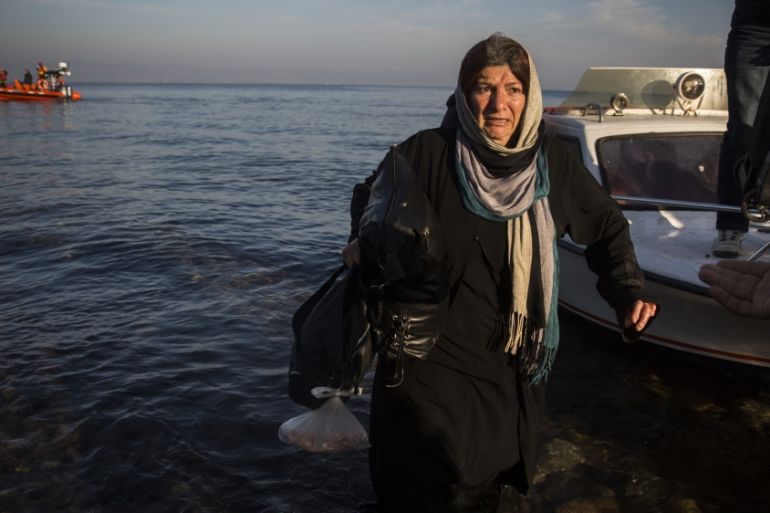Refugees meet the best and the worst of us in Idomeni
Kindness and cruelty on display as 2,500 to 3,000 desperate people cross the Greek-Macedonia border every day.

I went to Idomeni, on the Greek-Macedonia border, three times in six days.
There were roughly 2,500 to 3,000 refugees crossing that border on each of those days, though the number fluctuates.
Keep reading
list of 4 itemsUK passes law to send asylum seekers to Rwanda after months of wrangling
‘He was doing a moral thing’: Refugee jailed in Greece hopes to be freed
Rohingya in India accuse Modi of double standards on citizenship law
I saw many contrasts while there. Human nature that was good, and human nature that was bad.
The suffering of refugees you see on television is not the full picture. The reality is much worse and the absolute helplessness is evident.
If you give me 100 euros, you can go to Europe.
I saw and felt it in the eyes of a one-year-old child. She was tired, cold and sleepless.
I saw it in the eyes of a Yazidi man in a wheelchair – he said he became paralyzed after the shock and fear he felt when ISIL captured his home city of Sinjar in northern Iraq a year ago.
It was there in an old Syrian woman, supported on the journey to Europe by her two sons.
Real suffering and desperation. Yet the refugees continued to face good and bad attitudes.
A tall police officer with dark black glasses was trying to comfort a young refugee, patting him on his shoulder. At one point I thought he was going to give him a hug.
He had been turned back from the Macedonian border due to a lack of registration papers.
“Why you crying? Look, I can’t help you. Look, you go to Athens on this bus, get papers and you come back here, ok?” the policeman told the refugee, who kept weeping.
READ MORE: Dashed dreams on the Macedonia border
That same refugee was then approached by a group of European adults – they looked like Scandinavian volunteers. They spoke to the police chief and they took the refugee to Thessaloniki to register him.
I also saw a police officer behave very kindly to a Syrian family and an Iraqi Yazidi. I helped with translation for both. UN refugee agency staff and a Greek volunteer also weighed in.
At the same border there were dozens of volunteers: NGOs, Doctors without Borders, UNHCR and Greek volunteers. They are truly helping.
But I also saw some worrying signs.
I saw a police vehicle parked up and a policeman talking to some people inside.
“If you give me 100 euros, you can go to Europe.”
I wasn’t sure if this was for real. About 10 minutes later the same policeman came back and told them the same thing.
It was not clear to me whether he was trying to find out if the refugees had money.
Two days later, a group of about 20 to 30 refugees were sent back from the Macedonian border. There were Moroccans and Afghans and people from other countries.
READ MORE: Anger in Greek refugee camp after Idomeni eviction
I still remember the woman looking me in the eye. You could hear her eyes screaming: help me.
I was told they had forged their registration documents. They were gathered and the police were talking to them.
“You will go to Athens now to get papers. Do you have money?” a policewoman asked
“No money,” replied one refugee.
A policeman said: “You will be all detained for 6 months in jail.”
Then he laughed.
The same policeman saw me standing there, listening to everything. He spoke to me in Greek and I told him that I was a journalist.
“Please go, no journalist here,” he said.
I saw another refugee from Algeria. He told me the police had asked him if he had money before searching him and finding that he had nothing. A policeman then kicked him on the leg, he said.
“But it is okay.”